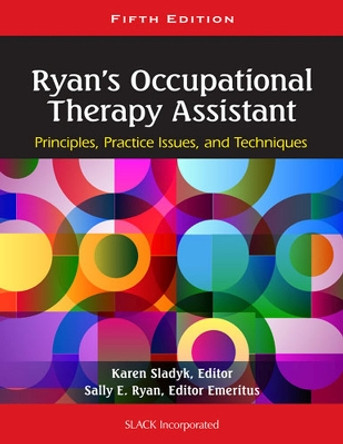Description
The relevance of design concepts to Occupational Therapy are illustrated in a broad context with reference to the folklore of disability and disability discourse, the profession's philosophy, conceptual models of practice, relevant legislation and review of Health and Social Care discourse. Ergonomic tools and techniques for practice are reviewed and related to the seven principles of Universal Design. Case scenarios are presented and illustrated with pictures and drawings to guide the reader through the inclusive design process as it relates to occupational therapists in a variety of settings.
Additionally, the book aims to give a voice to occupational therapists as specifiers of equipment, property adaptations and increasingly, as advisors to new dwelling and other building projects, with the aim of influencing manufacturers and building agencies in the adoption of inclusive design principles at the product/building design phase. This publication's unique focus is to present an integrated account of the relevant policy supporting service provision, in conjunction with core Occupational Therapy philosophy and the application of principles of Universal Design to case scenarios.
About the Author
Maggie Conway is a Borough Director for Therapies in a London Mental Health NHS Trust and an occupational therapist with over 20 years experience. In addition to her qualifications in occupational therapy, she has an MA in Design Research for Disability. She has held a variety of clinical and academic appointments in occupational therapy, but has particular experience in housing.
Reviews
"This is an important and indispensable text, providing an informative analysis of the meaning of inclusive design and its relevance to occupational therapy. The author's considerable experience as an occupational therapist, academic and educator, and her specialist knowledge in inclusive design make her well placed to provide an authoritative overview." (Journal of Occupational Therapy, March 2009)
"[The book provides] OT's with the theoretical and practical knowledge that will help them understand the principles and benefits of inclusive design." (Access by design, Autumn 2008)
"I would recommend this book to occupational therapists ... Its combination of theoretical background and relevant examples makes it highly accessible for practice application." (International Journal of Therapy and Rehabilitation, September 2008)
Book Information
ISBN 9781405127073
Author Margaret Conway
Format Paperback
Page Count 240
Imprint Wiley-Blackwell
Publisher John Wiley and Sons Ltd
Weight(grams) 526g
Dimensions(mm) 246mm * 173mm * 13mm







